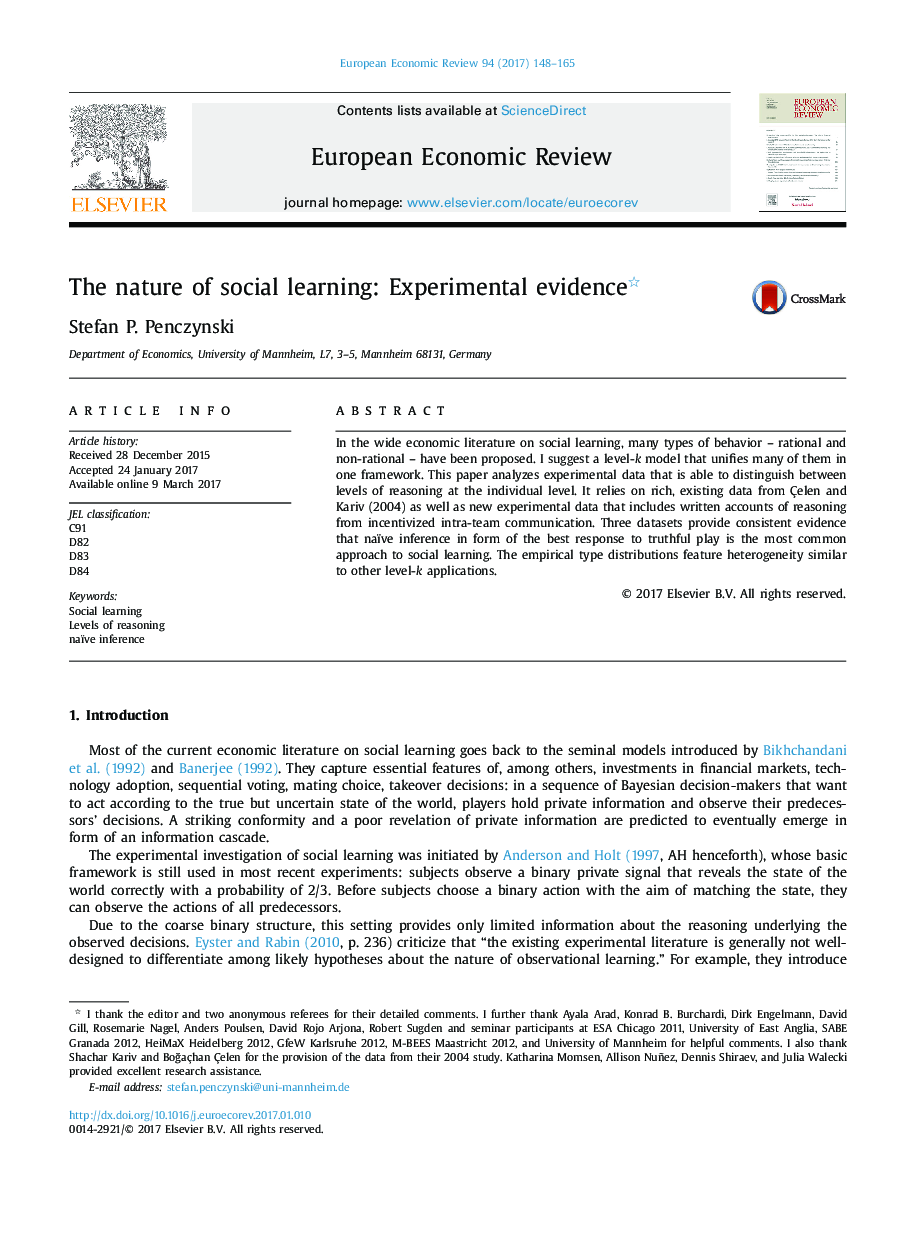| Article ID | Journal | Published Year | Pages | File Type |
|---|---|---|---|---|
| 5066376 | European Economic Review | 2017 | 18 Pages |
Abstract
In the wide economic literature on social learning, many types of behavior - rational and non-rational - have been proposed. I suggest a level-k model that unifies many of them in one framework. This paper analyzes experimental data that is able to distinguish between levels of reasoning at the individual level. It relies on rich, existing data from Ãelen and Kariv (2004) as well as new experimental data that includes written accounts of reasoning from incentivized intra-team communication. Three datasets provide consistent evidence that naïve inference in form of the best response to truthful play is the most common approach to social learning. The empirical type distributions feature heterogeneity similar to other level-k applications.
Keywords
Related Topics
Social Sciences and Humanities
Economics, Econometrics and Finance
Economics and Econometrics
Authors
Stefan P. Penczynski,
